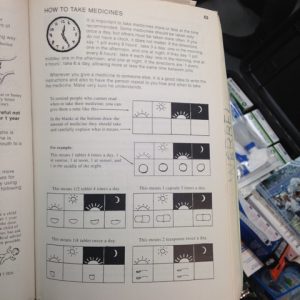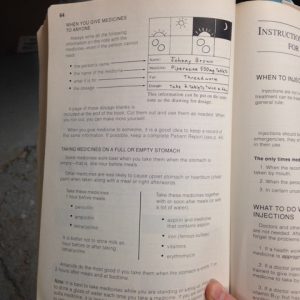As the fall term comes to a close, I am hit with the amount of preparation still to be done for the trip! I am in the process of talking with my local dentist and orthodontist about donations of toothbrushes. A second project is to prepare prescription scrips for our Community Health team to hand out with medication to patients. We are hoping to make something similar to these instructional pamphlets from the book Where There is No Doctor, suggested by the two physicians we are traveling with. With a fairly high illiteracy rate, the goal is to transmit instructions for how to take medications properly in picture format. The messages will include something about the number of pills to take at a time, the times of day, and to take it on a full or empty stomach.
These two projects are representative of the main themes that have guided our preparation thus far in the LACS 20 course: service and education. Most central to this course is an idea similarly key to global heart work. We have learned much of Nicaragua’s history (previous and contemporary) about various forms of volunteering, tourism, voluntourism, academia and research, and philanthropic, nongovernmental, and governmental work specific to the country in the contexts of environmental, health, economic, and political issues. While there seemed to be a weekly focus, every class ended up bringing up aspects of other topics as we drew connections, began to see patterns between events and ethical considerations, and heard from guest speakers. I was particularly pleased with how much our course, with the weekly x-hour, focused on the global health components of our trip. The diversity in approach and education allowed for fruitful discussions among my classmates as we all found areas of the literature we were more comfortable with and could use to contribute and further our own specific interests with. Yet, the part of the course that most impressed me was that by being so interdisciplinary, we were also forced and pushed to think of some of the same topics in many different ways that other classes on the same material within specific disciplines such as Anthropology or Economics would not have allowed us to do. In many ways, this course offered an opportunity to look at some of the world’s most pressing problems with a multi and interdisciplinary approach that resembles the way they ought to be dealt with on an international scale. I feel as if we are at the point in our trajectory where we have talked about the trip nearly every other day this term and prepared for the presence we want to have in the country. It’s time to go to hear the stories and history from Nicaraguans and get to work.


